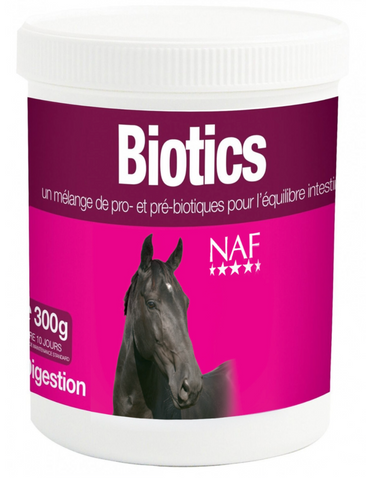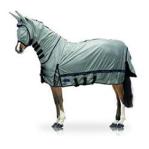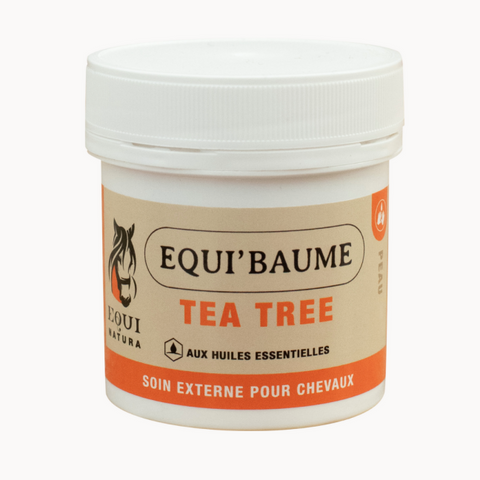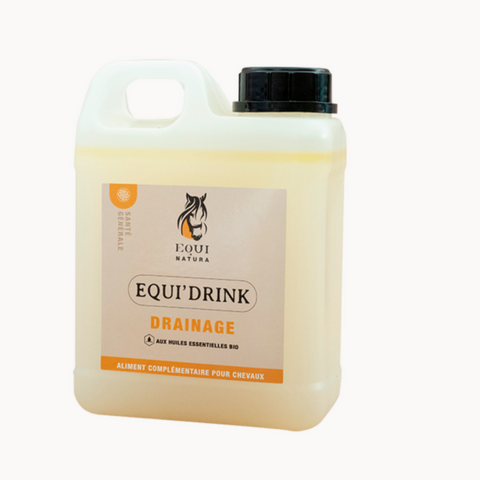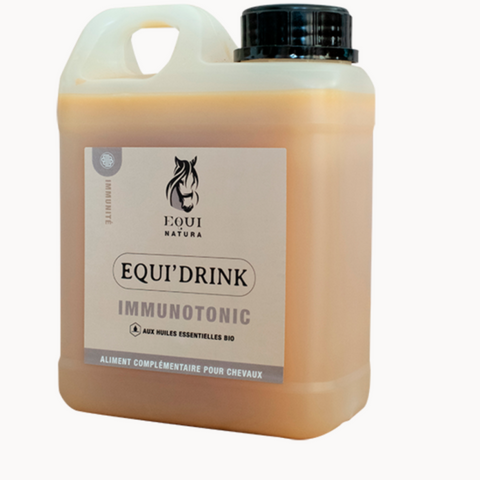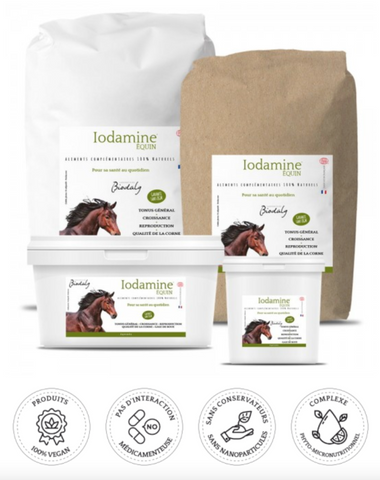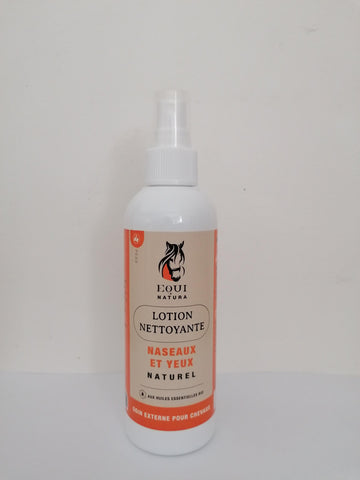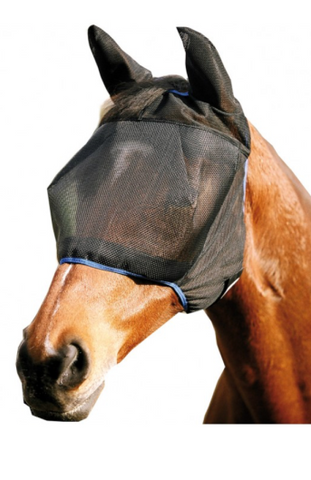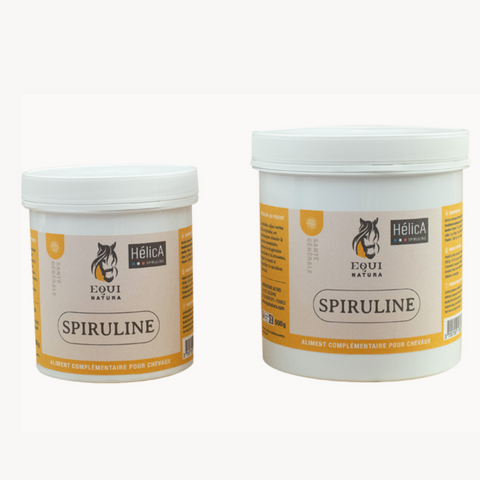From the tip of the nose to the tip of the ears...
Ears :
Your horse has always tolerated having his ears touched, but now he refuses any contact in this area: have him examined by your veterinarian.
If this does not reveal anything (otitis), it may be useful to call a veterinarian-osteopath.
A certain number of horses have small bumps, speckles, inside the ear pinna; these lesions are due to reactions to the bites of small midges.
Massage the inside of the ear with a little Equi'baume tea tree ; its smell will keep insects away and the Tea Tree will disinfect wounds. Leave the horse as much hair as possible inside the ears, this protects against dirt, but also against excess noise.
The eyes :
Many horses, especially in summer, exhibit fragility of the eyes. Tearing may be visible, it may be followed by inflammatory reactions.
In this case, apply compresses soaked in physiological serum (obtainable in pharmacies) or a chamomile decoction (preferably organic). The cleansing and soothing eye and nose lotion is a 100% natural antiseptic cleanser for the eyes and nose, which you can apply to the areas to be cleaned, also in the eyes.
Think about prevention with Fly Masks, which will protect against flies, dust and excess ultraviolet rays.
In case of purulent discharge or damage to the eyelids or conjunctiva, consult your veterinarian.
The nostrils :
When your horse's nostrils are swollen, painful, oozing, consult your veterinarian. Horses with depigmented skin are susceptible to sunburn: photodermatosis.
We notice red, painful, crusty skin and under the crusts it oozes or bleeds.
Prevention is better than cure: avoid exposure to the sun's rays and the administration of certain plants such as St. John's wort (hypericum), certain alfalfas, certain clovers, certain medications which cause greater sensitivity to the sun's rays (photosensitization).
If, however, you notice burns or excoriations, clean with physiological serum, then you can apply Equi'baume Tea Tree directly on the lesions.
The nasal mucous membranes are sometimes irritated: dusty environment, upper respiratory tract infections, which can result in a runny nose and snorting.
This type of reaction is noticed in a number of horses during the spring and fall.
These signs generally disappear spontaneously, however make sure that the discharge remains fluid and clear. If the discharge changes color, becomes thick, it could be a bacterial infection... this is the responsibility of the veterinarian.
Persistent unilateral runny nose may be a sign of sinusitis; then consult your veterinarian.
Above all, leave the horse with hair at the end of his nose, they are more important to him than you think. He can't see the tip of his nose, but he feels everything with his hairs.
The mouth:
Have your horse's teeth checked by a veterinary dentist every year. Dental anomalies can have serious consequences.
Then consider strengthening your pet with probiotics like Biotics or Spirulina .
For bite wounds, you can use Equi'baume Tea Tree , even if the wound is in the mouth!
Censing :
Vertical head movements, sometimes lateral, accompanied by gestures of rubbing the nose on the ground or on the limbs as well as sniffing and movements of the upper lip are frequently noticed, it is neither a 'tic' nor a “stable vice”. These movements become worse during work, especially when trotting and galloping
The causes are not well known but it is notable that these manifestations often begin in the spring, even in horses that have never had these problems. In most cases, stocking stops in the fall, but unfortunately there are more and more horses that continue all year round.
We think of hypersensitivity reactions: sun (rhinitis), pollen, a drop in immunity, but also nervous disorders (stress), dental, liver, blockages in the back (check your bowel movements!) or the articulation between the skull and the first cervical spine, the material of the bit and sometimes reactions to the rider's behavior.
The latest research shows hypersensitivity of a cranial nerve (N. Trigeminus) and at least 60 causes that can irritate this nerve, including blockage of the first cervical nerve and a virus (EHV). This virus is always present, but becomes active when the horse's immunity declines.
So, if you have a horse that has a hosing problem, there are three things you can do:
*show the horse to a veterinarian-osteopath and a veterinarian-dentist;
*increase its resistance with a course of Equi'drink Drainage , combined with a course of Biotics , twice a year and between courses regularly administer Equi'drink Immunotonic or Iodamine Equine ;
*if sensitive to the sun, consider using a fly mask and keep the horse in the shade.

